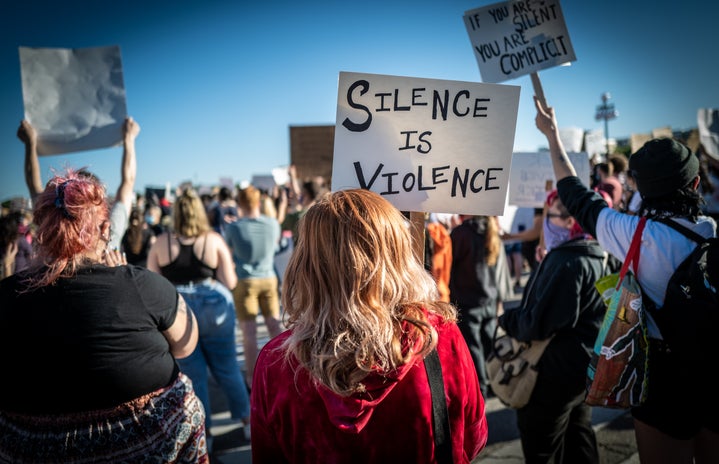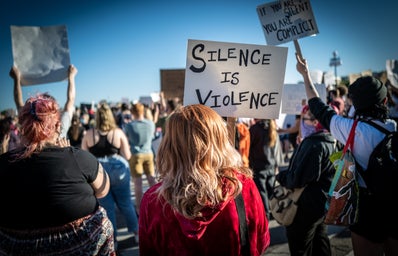Happy October! While most people associate this month with the beginning of fall, leaves changing colors, a cool autumn breeze, and the return of the oh-so-loved pumpkin spice latte, October is also domestic violence awareness month.
Nearly 20 people per minute experience physical abuse by their partner in the United States. In addition, the National Coalition Against Domestic Violence states that “1 in 3 women and 1 in 4 men have experienced some form of physical violence by an intimate partner. This includes a range of behaviors (i.e. slapping, shoving, pushing) and in some cases, people might not consider these actions to be domestic violence.” Because the topic is often taboo in our society, most people are unaware of the signs that a person or family is being abused – whether that be physically, emotionally, sexually, or otherwise. At the center of abuse is the need for an abuser to feel power and control. Therefore, while all situations of abuse look different, an abuser most often will use intimidation, mind games, verbal threats, isolation, gaslighting, and others to harm the victim(s).
So, what can we do as individuals and as a society to create change? First, we must break the stigma surrounding domestic violence and begin to openly discuss this pressing issue. We do this as individuals by allowing survivors to have a safe time and place to be heard. It takes a whole lot of courage to confide in someone about your experience with domestic abuse. If a survivor tells you their story, make sure to go to a safe space together and give your full attention to the person. Next, believe them. If your immediate response is disbelief, this could deter the person from reaching out for further help at that point in time. The least you can do is listen to their story and believe it. Reassure them that you care for them and want to help. Lastly, ask them what type of support they would like. Not all survivors will want the same type of help; some may need encouragement to leave, while others may need help figuring out the next steps and where to go.
On a typical day, there are more than 20,000 phone calls placed to domestic violence hotlines nationwide. This is a scary statistic to see as a survivor because you may think that you won’t receive help if you reach out – but this simply isn’t true. There are wonderful resources all around the country to get help, whether you need to leave your situation, take legal action, or just need to talk. Www.thehotline.org/ is not only a resource for victims, but also provides resources for abusive partners to seek help, gives information for family members that are working through their situations, and gives free, confidential advice 24/7 to anybody calling.
If you need guidance, please reach out to somebody to get out of any harmful situation. If you want to help survivors but don’t know how, the best thing you can do is spread awareness! Post about DVA on social media, check in on friends and family regularly, raise money, and donate resources to local shelters and service centers! Use your voice, and be loud.
Additional resources:
Crystal Judson Family Justice Center Helpline 253-798-4116
Counseling from MultiCare Behavioral Health Domestic Violence Services 253-445-8120
YWCA Domestic Violence Helpline 253-383-3593
National Domestic Violence Hotline 1-800-799-7233



